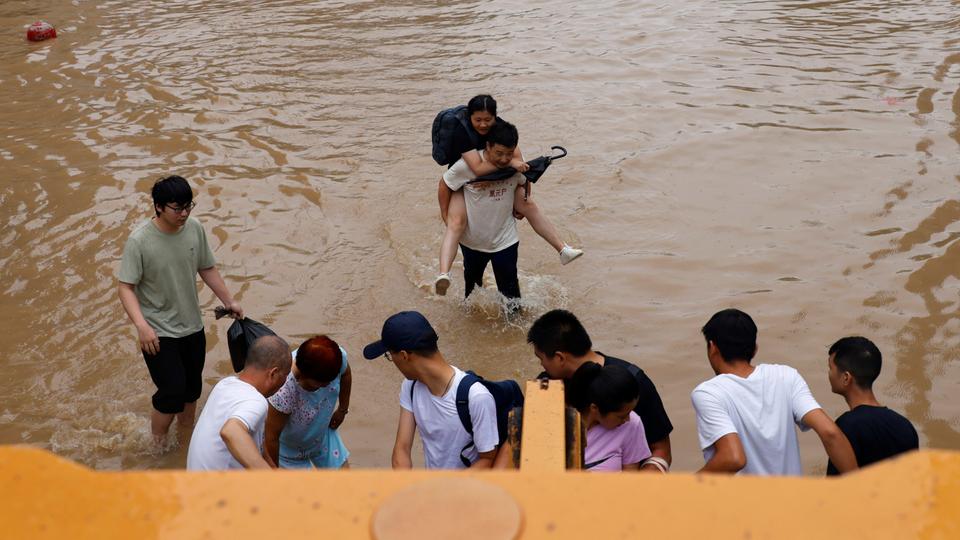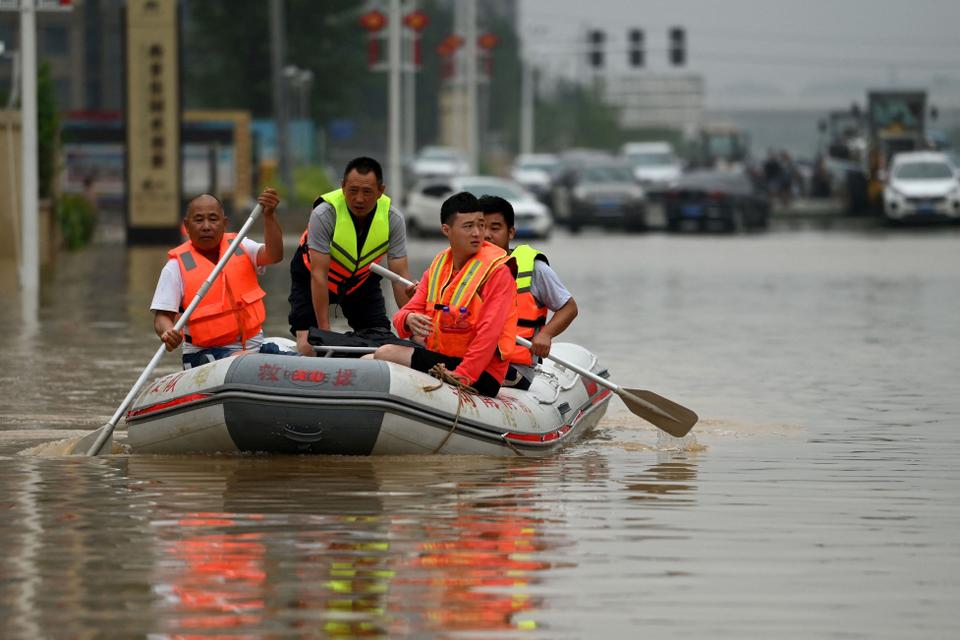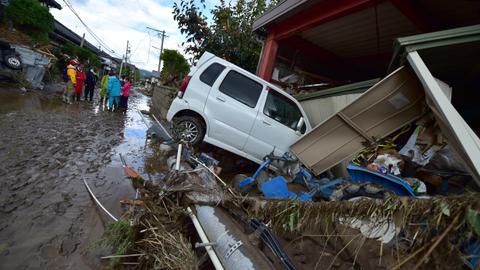Historic floods have claimed at least 51 lives in central China this week, including 12 people trapped in a subway during rush hour.

Thousands of villagers have been evacuated over makeshift bridges as floods submerged swathes of central China, following a historic deluge which claimed at least 51 lives, while a typhoon threatened to bring more misery as it headed towards the country's east coast.
Millions have been affected by the floods in Henan province, trapping people for days without fresh food or water, pulverising roads as they breached embankments and caking whole areas in thick mud.
In the worst-hit city of Zhengzhou firefighters on Friday continued to pump the muddy water from tunnels including a subway where at least a dozen people drowned inside a train earlier in the week as a year's worth of rainfall dumped down in just three days.
Overnight heavy rain saw floods surge northwards to Xinxiang and its surrounding areas where vast swathes of farmland were inundated and the town cut off as the Wei River burst its banks, thwarting efforts to plug the gaps with trucks.
READ MORE: Death toll from flooding in central China rises after record rains
Destructive floods
Arial footage showed rescuers using temporary bridges on Friday to move hundreds of residents to safety, as tree tops poking above the water were the only sign of land for miles.
"Presently, nearly 9,000 people have been safely transferred," state broadcaster CCTV said, adding authorities were evacuating "the remaining 19,000 people."
Videos shared over social media have provided a raw window into the destructive power of the floods, which tossed cars into piles and sucked pedestrians towards storm drains.
Harrowing footage from passengers trapped inside the subway at rush hour, where waters rose from ankle to neck height, pin-balled across China's Twitter-like Weibo as questions were asked about why the underground network was allowed to operate during an unprecedented storm

Typhoon likely to hit on Sunday
Meteorologists are now anxiously watching the progress of Typhoon In-Fa which has already dumped heavy rainfall on Taiwan and the east coast of China and is expected to make landfall from Sunday, in an area home to tens of millions of people.
"After landing, In-fa may circulate in the east China region, bringing long periods of extremely heavy rainfall," the National Meteorological Center said.
During Saturday and Sunday's high tides "coastal areas should guard against the combined impact of wind, rain and tides," it added, warning the public to prepare for a major weather event.
Questions have been asked on how China's bulging cities could be better prepared for freak weather events, which experts say are happening with increased frequency and intensity due to climate change.
Henan province is marked by rivers, dams and reservoirs, many constructed decades ago to manage the flow of floodwater and irrigate the agricultural region.
State media has rebuked suggestions that dams played a part in subverting the normal flow of water.
Stories of remarkable survival and tragedy have emerged as floods retreat from southern parts of Henan, with a baby dug out from a collapsed house while her mother died in the debris.
Locals in Gongyi on Thursday recounted stories of being pulled from flooded homes to safety or scrambling to higher floors unable to flee.
"We couldn't evacuate in time because my elderly disabled grandma couldn't leave the house," one 16-year-old school student surnamed Zhang, who said their house was completely flooded, told AFP. "I was pretty scared I'd drown."
READ MORE: Cities in central China flooded as river banks burst amid rains









